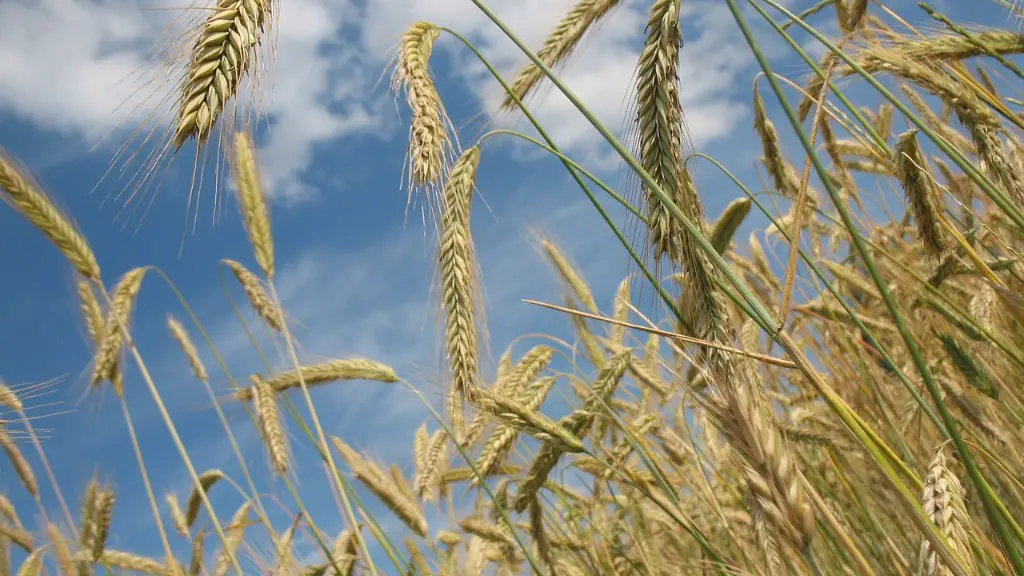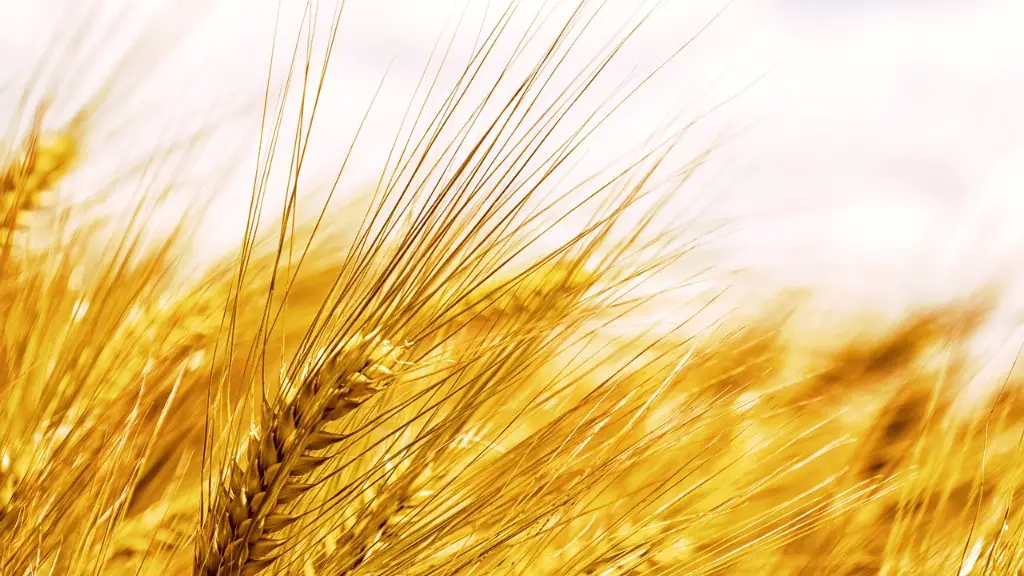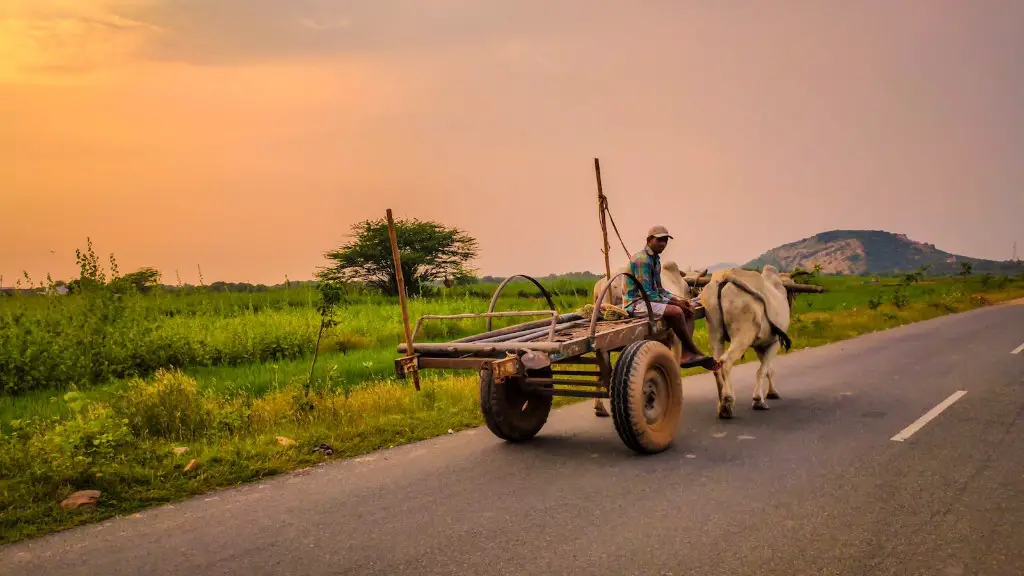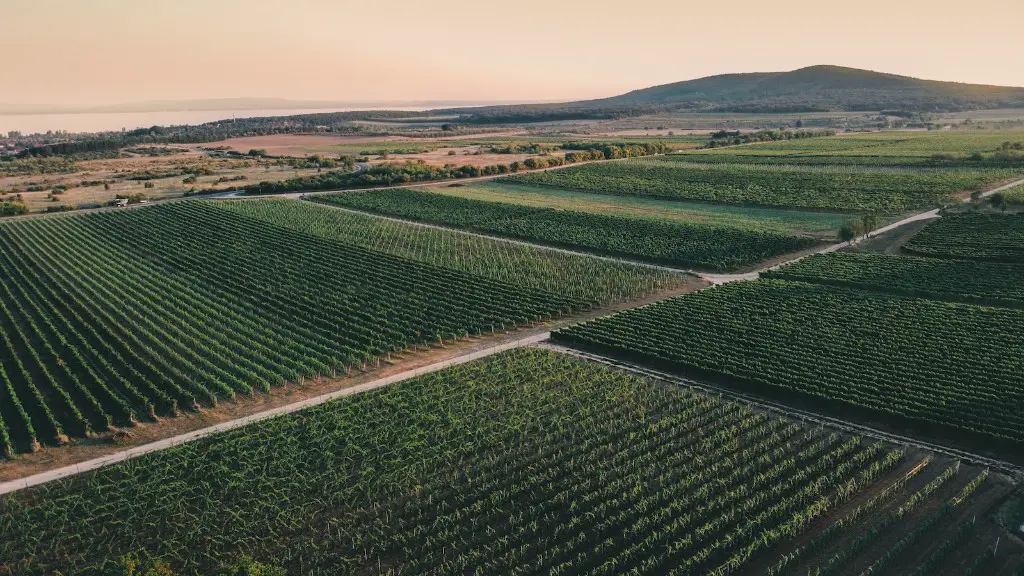Insects are a vital part of any ecosystem, and that includes agricultural ecosystems. Beneficial insects are those that provide a service to farmers, such as pollinating crops or preying on crop pests. These insects are essential for a healthy and productive farm.
There are many beneficial insects in agriculture, but some of the most important ones are pollinators like bees and butterflies. These insects help to pollinate crops, which increases crop yields. Other beneficial insects include predators and parasitoids, which help to control crop pests.
What are the most beneficial insects in agriculture?
Pollinators are important for the transfer of pollen between flowers of the same species. This process, known as pollination, is essential for seed and fruit production in plants.
There are a variety of pollinators, including honeybees, leafcutter bees, other wild bees, butterflies, moths and other insects. These animals visit flowers to feed on nectar and pollen, and in doing so, they help to fertilize the plants.
Without pollinators, many plants would be unable to reproduce and would eventually die out. Therefore, it is important to protect these animals and their habitats.
Insects play an important role in pollination, which is necessary for plant reproduction. Native bees, honeybees, butterflies, and moths are all examples of insects that can help pollinate plants. In addition, birds and bats can also help by feeding on pest insects that can damage crops.
What is a beneficial insect and why is it beneficial
Beneficial insects are a vital part of any garden ecosystem. They help to pollinate flowers, control pests, and improve soil health. By creating a habitat that supports beneficial insects, you can ensure a healthy and thriving garden for years to come.
Insect pests can have a huge impact on crops, and therefore it is important to be aware of the major ones. The cabbage seedpod weevil, for example, can destroy entire crops if not controlled. Cutworms can also be devastating, particularly to young plants. The diamondback moth is a serious pest of brassicas, while grasshoppers can cause significant damage to many different types of crops. Pea leaf weevils can devastate peas, while wheat stem sawflies can destroy wheat crops. Wireworms are another major pest, particularly of potatoes.
What is the advantage of beneficial insects in agriculture?
Insects are a vital part of our ecosystem, and there are many different types that provide different services. Pollinators are important for the pollination of plants, and natural enemies help to keep the population of pests under control. Both of these groups are essential for the health of our environment.
The three “P’s” of beneficial insects are pollinators, predators and parasites. Pollinators, such as honeybees, fertilize flowers, which increases the productivity of food crops ranging from apples to zucchini. Predators, such as lady beetles and soldier bugs, consume pest insects as food. Parasites, such as wasps, lay their eggs inside pest insects. The larvae then consume the pest from the inside out.
Which insect is considered to be the most beneficial of insects?
Ladybugs are often thought of as being beneficial to gardens and crops because they eat large quantities of aphids, mites, and other arthropods that feed on various plants. In addition to being beneficial to gardens, ladybugs are also considered to be lucky symbols in many cultures.
Bees are birds and insects that are very important in the pollination of many flowering plants. Many crops and flowers would not be able to produce fruits and seeds without the help of bees. There are many different types of bees with different behaviors and habits. Some bees live in hives while others build their nests in the ground. Some bees are solitary while others live in large colonies.
What is the most damaging agricultural crop pest
The Mediterranean fruit fly is considered one of the most damaging agricultural pests in the world. It infests commercial and garden fruits, nuts and vegetables.
These are some of the most destructive pests in agriculture. They can ruin crops and devastate farmers. If you see any of these pests, be sure to report it to the authorities so they can take appropriate action.
Which insects contribute a lot to the fertility of the soil?
Insects play a vital role in maintaining the balance of nature. They help to aerate the soil, pollinate plants, and control pests. Some insects, like bees and ladybugs, are considered to be helpful while others, like ground beetles and praying mantis, help to control pests. You can purchase your own kit of these insects online or at most garden stores.
Insects provide a great many benefits to both crops and wild plants. They pollinate flowers and help to spread pollen between plants, allowing for greater genetic diversity and a stronger gene pool. Insects also help to aerate and loosen soil, making it easier for roots to grow and absorb nutrients. In addition, insects provide an important food source for many animals, including birds, reptiles, and small mammals.
How do you attract beneficial insects
Insectary plants are those that attract and support beneficial insects. By planting these species throughout your garden, you can create a haven for many important predators. These predators can help to regulate populations of harmful insects, providing natural pest control for your plants. Many commercially available seed blends are available, which can make it easy to create an insectary garden. However, it is also possible to select individual species to suit your specific needs. When creating an insectary garden, it is important to consider the needs of the beneficial predators. Many of these animals are ground-dwelling and need a place to hide from their enemies. Creating a garden bed or border with dense plantings can provide the perfect habitat for these animals.
The most notable dangerous insects are:
– The Asian Giant Hornet
– Fire Ant
– Deer Tick
– Puss Caterpillar
– Mosquito
– Helminths
– Assassin Caterpillar
– Human Botfly
Some of these insects can cause serious harm or even death if they come into contact with humans. It is important to be aware of these dangers and take precautions to avoid them.
How do you apply beneficial insects?
In order to apply insect predators and/or parasites effectively, it is important to plan and handle them properly. The rate of application also varies depending on the type of beneficial insect being used.
Insect pollinators play a vital role in the pollination of wild flowering plants and agricultural crops. The loss of these pollinators can have a devastating effect on food webs and local ecosystems.
Warp Up
Some beneficial insects in agriculture include bees, which pollinate crops; ladybugs, which eat aphids and other crop-destroying pests; and parasitic wasps, which lay their eggs inside crop-destroying caterpillars.
In conclusion, beneficial insects play an important role in agriculture. They help to pollinate crops, control pests, and improve soil health. Farmers and gardeners can help to promote beneficial insects by providing habitat, avoiding pesticides, and planting a diversity of crops.





